Cosmopolitanism, as a doctrine not only of individual ethics but of the order of the state, has rightly been critiqued from a wide variety of angles. Its invidious erasure of human differences and cultural richness, its implicit contempt for both tradition and for the natural and native ways of human societies, its dangerous extension of the condition of specific individuals (the ‘artist’, the ‘philosopher’, the ‘homme du monde’) to the generality of humanity and human societies, all contribute to making this one of the most deleterious doctrines of our time.
The author himself has contributed to the work of critiquing this notion in several places, and in one essay in particular has striven to show how cosmopolitanism, under the guise of the so-called ‘open society’, is in fact an inevitable recipe for universal dictatorship.1 The present essay restricts itself to considering a more limited, but not for that less important, final consequence of cosmopolitanism.
Before coming to that, however, a word on the idea of cosmopolitanism itself. It, like practically every contemporary notion of political or ‘social’ philosophy, is susceptible to a variety of interpretations and proposed meanings. Some of its practitioners or theoreticians like to look for ancient philosophical antecedents to it, particularly in the Ancient Greeks; they are aided in this by the fact that the word itself stems from the Greek, and was evidently first used by Diogenes the Cynic in description of himself – a likely story, from which, however, one should not be tempted to draw too many stringent conclusions.2 In the present day it is used in a variety of senses and contexts, and by a variety of philosophical stances. We recur therefore to the most basic sense of the word as it is presently in use today: it means to suggest the ideal of the ‘citizen of the world’ as a generally attainable human ideal.
The ‘citizen of the world’, though necessarily born in a single geographical location and raised to a single set of mores, languages and customs, has learned the inherent limits of locality and has consequently come to transcend them in his personal attitude and beliefs. He sees most immediately, not the unique texture and special charm of his native people or hometown or nation, but rather their parochialism and blindness, and he tacitly if not explicitly denies the possibility that such quaint customs might be deeply and secretly connected to the wellspring of a primordial wisdom tradition. His view represents therefore a break with history. He shuns the dogmas of his grandsires, no longer holds to their ways or manners, and reveals this mundane rebellion in the totally generic, workaday clothing he likes to sport and in his tending lack of clear gender. He makes a cult of ‘travel’ for travel’s sake, seduced by the movement of it and by the (generally unwarranted) aura of worldliness that it grants him. If he is not a polyglot, competent in a number of widely spoken languages, then he is at least fluent in English, the lingua franca of our day, which permits him some degree of communication wheresoever in the world he may go. He is characterized by liberal attitudes, for these alone, he understands, grant a man that magnanimous and tolerant breadth of opinion in which he perceives the watermark of an educated and humanistic individual. He looks benevolently on all the ways of the world except those which are restrictive, censorious, violent, closed and intolerant. These traits, however, are characteristic of practically every worldview other than his own; this tension forms a sensitive point upon his personal views, marking an evident contradiction within his worldview which threatens ever to leap out and strike at him. He avoids contemplating this dangerous issue by means of a singular talent at mindlessly adopting and repeating pleasant, if utterly false, platitudes, and a keen knack for what might be called ‘bromidal logic’, by which stern reasoning, loftiness of thought and obedience to the intellectual conscience are all replaced with ‘positive thinking’.
He nonetheless fancies himself a free thinker, and quite naturally and instinctively posits himself as the end and culmination of history. This attitude deeply informs him, quite despite the personal humility he probably likes to feign, which might even be marked in him to the point of becoming quite irksome; the average cosmopolitan would never dare to express his sense of historical superiority in any but the most generic sense (speaking, that is, of ‘technology’ and ‘great strides’, ‘evolution’ and ‘progress’, etc.), but it is evident that this sense of superiority colours his entire outlook, as can be easily attested in the tone of easy condescension he takes when speaking of even yesterday, not to speak of his shocking lack of curiosity regarding the depths of our human past. For unless he personally feels some special affinity for historical studies (generally on account of some personal feature of his, such as an unusually fine memory or the vain delight in knowing what others do not know or of passing judgement on the children of yesteryear), he is liable to be ignorant of ‘history’ to an extent unheard of in the supposedly ‘educated’ classes of any time or any nation of any epoch or place in the West. His fundamental and unshakable belief in his own openness, tolerance, freedom etc. forms a protective barrier against all really new or radically old ideas; he is surrounded infallibly by a kind of glowing haze, a mist infused with light, which easily blinds him and persuades him that he gazes ever upon the splendid face of reality itself. All societies have their special lies and restrictions, their closures and their limitations; the cave, as Plato taught, is inherent to human society as such. But the cosmopolitan is characterized precisely by this: in believing that he alone of all historical men has by his very birth escaped from the cave, he carries his own cave turtle-like with him everywhere he goes, as his own and most personal raiment; it lies so near to him and so heavy upon his back, that he could no longer twist his head to rightly perceive it even if he tried. The depth of his own parochialism, closure and dogmatism is to be measured in the fact that he naturally and unhesitatingly supposes that any educated man he encounters will think and judge the world precisely like him, implicitly sharing his vision and his general outlook; and he will go so far as to immediately speak to such a man in the tones of comfortable confidence regarding the latest political questions and affairs of the day, never so much as suspecting that there might be anything offensively familiar and presumptuous in this attitude. Should his presupposition prove false – should his educated interlocutor dare, in his turn, to express ideas that are not drawn from the tepid well of contemporary ‘liberal’ opinions – our good cosmopolitan will remain amazed by the fact, and, supposing he does not retract from the conversation at once like a man stung by a viper, will certainly utter some revelatory remark to the effect that he never would have expected such objectionable views to exist in the mind of a man who is otherwise so enlightened.
We have drawn this portrait of the cosmopolitan – creature who represents far less any Diogenesian kind of cosmopolitanism, than the decline, vulgar generalization and retrogression of the same – not certainly in order to convince him of his limitations; for, as noted, he is armoured against all critics with a marvellously thick intellectual (though not emotional – to the contrary!) skin. We paint this portrait rather because cosmopolitanism in miniature, in the life of the unreflective cosmopolite, is liable to parallel and reflect cosmopolitanism in the macro, on the level of society. The cosmopolitan society shows the same kind of naive and ingenuous closure, the same kind of internally self-defeating intolerant tolerance, the same kind of automatic if halfway-ashamed supposition of its own superiority, combined with an unprecedented protective shielding against the perception of its real limitations, as the cosmopolitan individual. To be sure, all societies, or all healthy societies, presuppose their innate superiority, their right to exist and to have a ‘place in the sun’; but it is characteristic of the cosmopolitan society particularly that its supposition of its superiority is combined with a connate inability to see the ways in which its peculiar outlook clashes with all other worldviews. This contradiction cannot help but raise its head in any number of neuroses encountered in these societies, which now and then, despite their iron-clad faith in their ‘liberal’ ways, break out into the most remarkable displays of mass self-loathing. And indeed, even their most cherished beliefs conceal something of this self-hatred, this subtle and secret will to immolate oneself on the alter of humanity. Hence the delusion of ‘multiculturalism’ and the stunningly ingenuous cosmopolitan belief that conflict in the world can be suppressed by mere adherence to the virtue of ‘tolerance’. No, there is nothing strange in believing in the superiority of one’s society; but only the cosmopolitan is deluded enough to believe at once in the superiority of cosmopolitan society, and in its essential compatibility with every other kind of human society.3
The cosmopolitan attitude, so far as the cosmopolitan himself is concerned, is incompatible with one thing and one thing only: and that is, ‘closed borders’. The cosmopolitan cannot countenance the division of peoples into tribes, clans or nations. This strikes against the very presupposition of his worldview, which purports to consider the human being qua ‘human being’, rather than considering the human being as the natural expression and manifestation of this or that unique race, culture or society. As has been discussed by many clear-sighted commentators, the idea of a ‘human being’ as such, totally detached from any and all peculiar customs and ethe, naturally results in a kind of skeletal view of man – a humanoid automaton, defleshed and disembodied, denatured and deracinated, who can be rightly measured by his ‘choices’ and his ‘merit’ alone; and since ‘choice’ and ‘merit’ in turn cannot be judged, according to the cosmopolitan view, from any particular morality or religion, from fear of thereby succumbing once more to the old individual customs and cultures of peoples and fatherlands, they must be understood in economic terms, in what a man purchases, in what a man earns for his work and for his ingenuity, in what job a man professes and what abstracted social role he plays in consequence. The cosmopolitan ideal thus naturally generates a conception of the human being as Homo oeconomicus, and is in turn strictly connected with the rather curious obsession of all globalist and cosmopolitan theoreticians with human movement. This obsession has gone indeed to such a point that a new word has been invented for it – a truly garish neologism in a sea of offensive linguistic novelties: ‘mobility’. The cosmopolitan, supposing he is only au courant with the going academese, will speak with pride about his society’s ‘mobilities’, or the ‘mobilities’ which are now permitted in the European Union – the ‘transversal mobilities’ of human beings, goods and ideas across borders, the ‘vertical mobilities’ of workers or wealth or status from one rank or class to another. The connections of this idea with the contemporary notion of ‘democracy’ are so evident as to warrant no comment here. We focus rather on the necessary conclusions which any man must reach, who holds to the intrinsic value of these things.
A world in which a human being is defined exclusively in terms universalizable to the entirety of humanity is necessarily a world in which the borders standing between nations are to be slowly eroded and finally abolished, in which human beings are to be permitted and encouraged in the greatest possible freedom of movement – fact which itself suggests a great deal regarding the despiritualized and thoroughly materialistic nature of this view – and in which the one thing that will no longer be tolerated is intolerance. The exemplary concrete representation of intolerance on the level of law and politics is the watchtower, the border control and the border patrol, and above all the fence and the wall; such objects become then central symbols in the metapolitical struggle between cosmopolitanism and nationalism. Cosmopolitanism ideally would eliminate not only these physical traces of ‘intolerance’ themselves, but also the very need for them. The former is a relatively easy task; the latter is of much more moment, and leads us to the question we would like most closely to address in the present essay.
The elimination of the need for borders necessarily requires the production a kind of humanity and a kind of society for which borders are no longer necessary. None but the most naive and ignorant of the globalists would dare call for an immediate obliteration of national boundaries and the instantaneous and precipitous melding of all the world’s nations; the globalists who are presently at the helm of current events recognize that a deal of work must be done before this end can be fully achieved. But this is the end toward which they all of them are striving: they urgently crave the global society, the ‘global village’, as it is quaintly, but nonetheless significantly, called.
A village is a tightly knit human community which is marked in particular by harmony, well-established social roles and a homogeneity of mores, phenotype and of opinions. Inherent to the idea of a ‘global village’ is therefore the insight that humanity can be unified under the rule of a single society only insofar as the deep and decisive, indeed the characteristic, differences which separate human beings have been eroded or eradicated. These differences include the religious (hence the global village would require a universal de facto secularism which steals from every faith the dignity of being a holistic, and therefore political and social, standard for man), the racial (hence the global village would require the merging, interbreeding and final integration of all the world’s peoples and types), the economic (hence the global village would require the ‘elimination of poverty’ through welfare, healthcare, universal income, etc. and the generalization of the middle class to all of humanity – excepting, of course, the ‘meritorious’ rich), the customary (hence the global village would require a uniformity of human ways and an elimination of the deep divisions between the same, rendering all differences superficial and harmless, a mere matter of dress and affectation), and the ethical (hence the global village would establish a single morality for all men which, while permitting unusual breadth of action in what was once considered the realm of vice, would for the same reason decisively shut off the realm of what was once considered virtue, essentially inverting the older ethics).
A truly liberal man, in the original sense of this expression as a ‘free man’ or a man trained in the liberal arts, could embrace the universalization of a single worldview to all of humanity under one of two conditions alone: either if this worldview were the true worldview, and hence proved the right to reign over the whole of humanity; or else if it were a uniquely liberating worldview, which provided the human being with the maximal freedom to seek the truth or to attain to virtuous ends. Else the free man or the man desirous of freedom will be the first to oppose the advent of any ‘universal’ society, recognizing it for what it is beneath all its wiles and guiles: tyranny beneath the suave and mendacious mask of an utterly false ‘liberty’.
References
1See ‘The Open Society and Its Enemies’, Arktos Journal, 6 December 2018.
2In the first place, Diogenes was a great trickster and clearly had an acerbic kind of wit, which should make any man wary of noddingly accepting his reported pronouncements in universal key. But even supposing that Diogenes meant this self-description in perfect earnest, it remains a question of the first order (to any non-democratic thinker) if a virtue or a quality fit for a philosopher like Diogenes could or should be generalized to the whole mass of humanity. Let it be recalled that the Greek meaning of the term is not at all ‘citizen of the world’, as it is currently taken to mean, but rather ‘citizen of the cosmos’, of the ordered whole. The citizen of the cosmos is necessarily something more than the citizen of this or any state: Diogenes was not making a claim about the just political order fit for human beings, but rather of the being itself of the philosopher, and his pertaining to a wider sphere than can be contained by any given body politic. To this extent, far from expressing the current global socio-political cosmopolite ideal, Diogenes was simply expressing once again, as he had done on countless occasions and in countless more or less esoteric gestures, the asocial and indeed apolitical essence of philosophical thought. Every philosopher must indeed be regarded as a cosmopolitan in this special sense; but far from supporting current cosmopolitan ideologies, this unique status of the philosopher (which he shares perhaps only with the artist and the spiritual master) actually represents the final and decisive disproof of the same, as we will consider more closely in the second part of this essay.
3 Save of course ‘fascist’ societies. But this particular term in the cosmopolitan’s lexicon is reserved almost exclusively reserved for Western states, or for states that are perceived to have been established by Western ‘imperialism’; the singular opposition to ‘fascism’ on the part of the cosmopolitan thus reveals itself as but another facet of his special lack of truly ‘cosmopolitan’ vision. But all of that is matter for another essay; in the meantime, we defer to the reader to the very useful remarks that Richard Heathen has made on this score in his recent essay ‘A Reconstructive Revolution’, Arktos Journal, 13 November 2019.
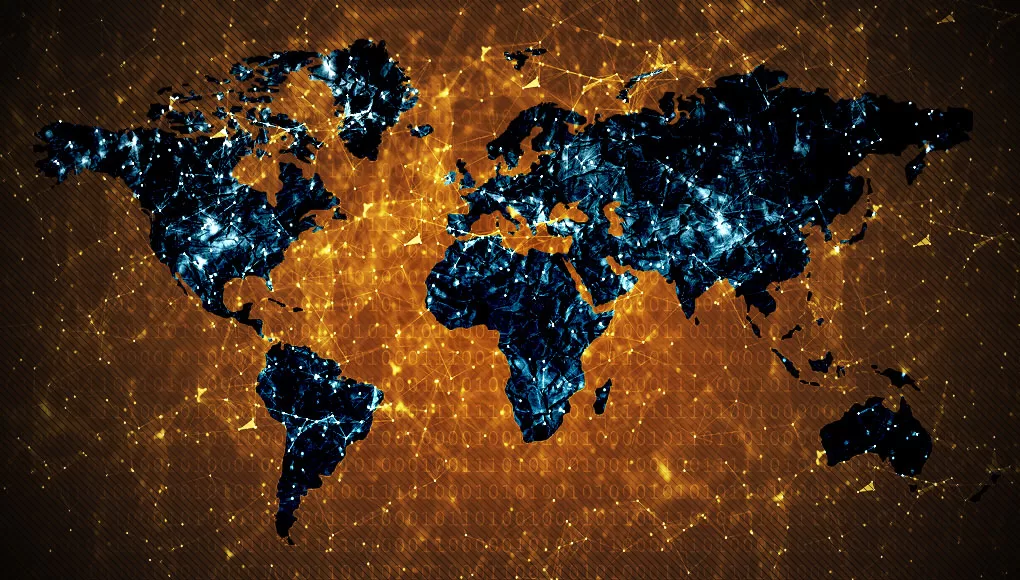


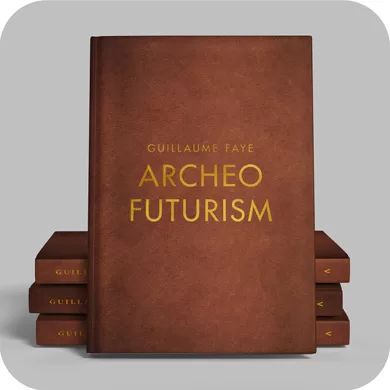
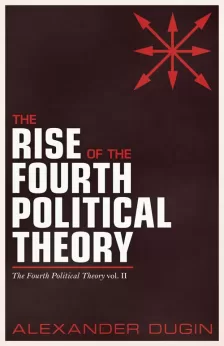

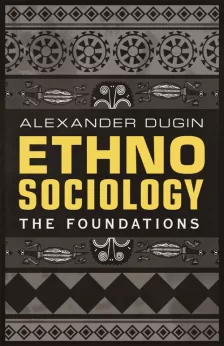

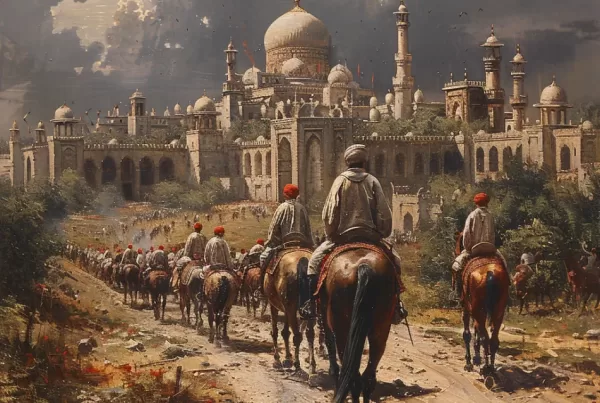

I will be honest; I have seen the exact analysis of cosmopolitanism in other authors’ works. BUT your description of the cosmopolitan as a creature is what stands out. You should be a novelist. We don’t have any literary accounts of our times yet that are critical enough to reflect the social truth. I can picture something in the likes of the present day Gatsby or a postmodern Swan or Ulysses.
Thank you for your kind comments, Glenn. Hardly can I hope to have added any really new idea to the discussion on cosmopolitanism, but if my essay has managed to express some facet of the issue in a fresh or halfway compelling fashion, that is, I may hope, some excuse for its having been written.
I agree entirely with you that we are in dire need of more insightful and high-quality fiction. I suspect that the special and important role which the novel once used to play of being the watchman and critic of society is swiftly coming to an end in our time, in part on account of the ‘inner dialectic’ of art itself; but if any group today had the right and the duty to attempt to resuscitate that old office, it would certainly be the folk of the contemporary New or Alt Right.
We have the start of a culture of our own, methinks, in gifted writers like Fenek Solère and Tito Perdue; and while they are not entirely writing along the lines you have suggested, since their styles and their projects lead them toward somewhat different stars, may be they have opened the path to such a writer. We can only hope that he is out there even at this moment, tinkering away on his typewriter as thoughts of precisely this nature are adrift in his head.
Although, Glenn, I must admit that I have also read a very similar account of the cosmopolitan in another author’s work (sorry, Mr Leonard). It was almost precisely the same, which makes me wonder. In it, the creature was also described as a traveler, a polyglot, and multilingual, worldly man. It additionally distinguished him as a consumerist with highly utilitarian narcissistic streaks. The creature itself was metaphorically called The Careerist, an archetype of our time.
I do like the suggestion though to produce a work of fiction based on these insights.
But there is certainly no cause to apologize, Ben, if you have noted similarities between my work and that of an author who appears, from your brief description, much better prepared than I am to confront these questions. To the contrary, such parallels are positively to be desired, since they indicate that we are all seeing the same things, and thus that the outlook we are currently developing is touching on something real in the present situation, rather than being the consequence of a limited viewpoint or mere invention. It is hardly to be regretted if many of the same ideas spring up spontaneously in different parts of our movements, under a variety of pens; that may even be a sign that we are approaching the true conditions for a culture of our own, which is, as I hardly need affirm, strongly to be hoped for.
As for originality, it is the cheapest and tawdriest fruit of the modern age; it requires almost nothing at all to be ‘original’. It is my view that a man of the Right should interest himself altogether more in truth than in novelty — another reason why the echo between my work and this other author’s is to my mind a favourable and encouraging sign.
Do you happen to recall the name of the author or the work to which you allude? I do not believe I know either, and I am probably not alone in my curiosity about them.
I am glad you take it that way, Mr Leonard. I found the description of the Careerist in a publication on how consumerism has undermined our culture, some time around 2014. It stuck with me because the description was so concise and novel. I would have to check my ‘archives’ (which I keep) to see who the author was.
Unsurprisingly keen and exemplary: thank you Mr. Leonard for this essay. The Right-thinking intellectual front is developing its broadness and stride for the long road to the day of its prevailing. Bravo! Thank God it has finally learned to shed its misdiagnosing, cowardly, sniveling, obsequious, apologetic, tepid and sell-out responses to to the major challenges of our time.
The problem of open borders is so severe, so existential, so deleterious to every nation, that a vigorous and profound response is warranted—no, demanded–by decency itself. I believe that lawmakers need to begin to explore enhancing legislation providing for the death penalty for cases of juridically-established crimes–of course according to due process–against a nation’s sovereignty and borders. In fact, these laws do exist, but perhaps there needs to be a revision that enhances the clear application of such in this age of blatantly-promoted and facilitated migro-invasion. When there is such a scofflaw attitude that pervades the public discussion, sharp punishment is necessary to refocus people’s respect for language, meaning and natural order. Leaders arrogantly misusing their roles as the heads within institutions for corruptly subverting the nations and peoples they were charged with serving and protecting are the most culpable and influential in these serious crimes.
Yes, the death penalty–even for properly tried and convicted Catholic bishops–would be in order (I am Catholic, b.t.w.). It would be prudent if an official, special ‘anathema sit’ were to be carried out in order to prevent the guilty, criminal prelates from ever being made into poster-children and pseudo-saints for their vile acts of promoting the destruction of sovereign nations and divinely-ordered ethnicities.
The suffering that individuals and organizations create in the malicious dissolution of nations is so grave that strong measures are needed to end these migro-crime transgressions immediately. Clearly mercy, reason, good-faith and long-suffering was insufficient to bring the wayward, disobedient “children in clerical robes” and political leaders to repentance. If we continue to neglect this problem, it will bring about very great evils.
Let’s begin this discussion. Let’s invite the attention to the matter before it worsens.
Dear leaders, are you listening?
Dear David
As you and I apparently both appear to be practicing Christians I find your comments to be inconsistent with our precious Grace through faith.
Calling for a death penalty for whatever, or however heinous a sin, simply does not fit.
“Treat others as you would like to be treated”, “Do not kill”, “Turn the other cheek”, “Be humble when persecuted” so as to set yourself apart from the wicked.
It is true that we need to defend virtue and righteousness but one cannot defeat ‘evil’ by resorting to evil.
Don’t carry your own cave around on your back as so eloquently put in this essay. The road forward will be hard but we should cherish the challenge.
C
Dear Chris,
Thank you for what was mostly a kindly-stated comment. I am uneasy with the death penalty being employed for general use in the penal system. It is with great reluctance that I raised the possibility of capital punishment as a deterrent or retribution for leaders who have persistently and clearly acted to plunge the whole world in its present state of woe in dimensions never before conceived. Conversation–genuine, public and within the protections of free speech–is the ideal. Conversation is not a given either in practice nor in theory. Many–not even among the elite–oppose the idea of conversation as well as free, reasonable speech because of their particular type of authoritarianism—whether on the Right or the Left. When individuals in positions of significant authority or leadership abuse the foundations of language and reason, and when they consistently ignore the exceedingly patient, rational positions and pleas put forth by very serious members of society (perhaps leaders themselves or respectable intellectuals) who have tried assiduously to exercise the legitimate, available channels of response and petition—these figures are gravely putting at risk the bedrock of people’s flourishing in peace and lawfulness. These figures in their dubious designs are knowingly undermining not merely the foundations of human society and its institutions, but they are undermining that upon which all else rests. The depth of evil involved is arrogant and malevolent beyond what most imagined or thought possible of their authorities, thus the slowness in even recognizing and accurately identifying the damage as it was being done. So deferential to these authorities were the majority of people–as you would wish–that it was those who were attempting to raise the alarm who were perversely and consistently punished. And from a Christian perspective, Chris, this is not merely an issue of good function of society and the temporal safety of potentially all humans, it is a grave matter that threatens the loss of souls for eternity in numbers beyond human counting. For serious offenses and potentially continuing threats of simply the temporal harms, the Church reluctantly recognizes (see the Catechism of the Catholic Church) the legitimacy of war, rebellion and the death penalty. These are not easily considered things. I certainly would be distressed to be forced to engage in them. I prefer to keep my blood on the inside and would be extremely hesitant to cause anyone else to suffer deadly harm. I am encouraged that you paid attention to the topic enough to respond. I would assert that, if I might gently call it that, platitudes, such as your final statement, “The road forward will be hard but we should cherish the challenge,” will alone not be sufficient. I do not know you. You may be vigorously and heroically engaged in The Cause. If so, bravo! But too much damage has already been done and available avenues of quiet and polite solutions are increasingly being blocked. The direction is accelerating downward. The powerful are quickly amassing technological roadblocks on the remaining pathways of a system- theory feedback to their designs for global control. The elites seem willing to employ any means necessary to gain hegemony. By merely raising concerns about what was being done, by merely following the hard road that you in fact suggested, many have paid a heavy price. Are you? What I have placed into objective view is the somber possibility that soon no other recourse exists against the morally corrosive and lethal powers being wielded by those currently in authority. I hate the resort to blunt force where Conversation could have, and should have, triumphed. But the authorities of today are attempting to instead make Conversation ineffective or even punishable, in some places secretly and in other places openly and brazenly. The powerful have harmed the eyes, they have harmed the tongues, they have crippled the hands of labor and enterprise, and they have mutilated the powers of generation of our people—the people that they are charged with protecting. Particularly for the Churchmen, they have exhibited indefensible disregard for the care of souls and the temporal institutions and practices that help ensure reliable transmission of protective milieus for their people. The care of souls means working to protect and foster environments in which souls are born, raised, educated and reasonably enabled to flourish. My comment is primarily an hypothesis. It is an hypothesis of what I fear may likely come to political, religious and social leaders in the form of punishments–certainly not from me–but from a mass of humanity trying as a last resort to protect itself from those who have demonstrated their inability and unwillingness to dutifully protect them, in fact, who have shown in many situations to be the very wolves who are tearing them apart.. There. I have placed a thing on the table for Conversation. We are still able to talk. Let the discussion begin. The current disordering of legitimate authority cannot be left uncorrected in its exercise of its malice. Is it not an act of kindness to inform those among the powerful classes that there are always unavoidable temporal consequences when the sins of nations, especially the leaders, accumulate? This is not a new warning. What are your solutions beyond vague wishing? To be sure, action has its restraints of practicality, means, ends, rationality and morality. But inaction in the face of clear, unbridled evil is a grave condition that is opposed to true prudence. Theory must be integrated with practice. Deliberation must judiciously lead to restrained, appropriately defined and non-hasty action.
“As you and I apparently both appear to be practicing Christians I find your comments to be inconsistent with our precious Grace through faith.
Calling for a death penalty for whatever, or however heinous a sin, simply does not fit.
“Treat others as you would like to be treated”, “Do not kill”, “Turn the other cheek”, “Be humble when persecuted” so as to set yourself apart from the wicked.”
That sounds like a poisonous Semitized Christianity to me, not an Aryan one. I refuse to make peace with evil, both internally and externally. Semitic Christianity has killed the true Christ. The bible is not the Word of God. The Word of God is within us, within all life in the universe, not in a poisonous book that man wrote. The people who wrote the bible have secularized our ancient Aryan metaphysics, the people who wrote the bible have secularized the spiritual. The ancient Aryan man tried to spiritualize the material, Semitic Christianity has done the opposite by materializing the spiritual. Very few people have been able to de-secularize the metaphysics and spirituality in the bible. 99.99+% of people are no Thomas Aquinas, Meister Eckhart, Jacob Boehme, etc, only in the hands of people like them is the bible not a dangerous book, in general the Judaic bible is a dangerous book that has contributed to the Semitization of our people. Almost all Christians are Pharisees.
Thank you for your comment, Dale. I will prayerfully and sincerely be open to the Lord’s help is understanding the divergence between our views.
https://en.wikipedia.org/wiki/Capital_punishment_in_the_Bible